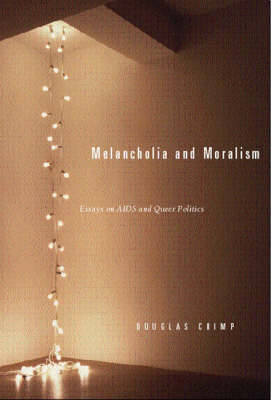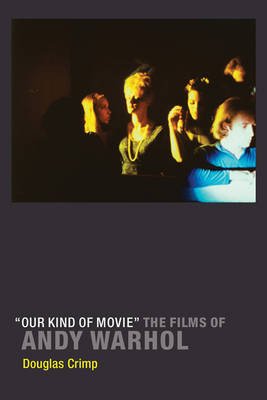The MIT Press
2 total works
In Melancholia and Moralism, Douglas Crimp confronts the conservative gay politics that replaced the radical AIDS activism of the late 1980s and early 1990s. He shows that the cumulative losses from AIDS, including the waning of militant response, have resulted in melancholia as Freud defined it: gay men's dangerous identification with the moralistic repudiation of homosexuality by the wider society. With the 1993 march on Washington for lesbian and gay rights, it became clear that AIDS no longer determined the agenda of gay politics; it had been displaced by traditional rights issues such as gay marriage and the right to serve in the military. Journalist Andrew Sullivan, notorious for pronouncing the AIDS epidemic over, even claimed that once those few rights had been won, the gay rights movement would no longer have a reason to exist. Crimp challenges such complacency, arguing that not only is the AIDS epidemic far from over, but that its determining role in queer politics has never been greater.
"We didn't think of our movies as underground or commercial or art or porn; they were a little of all of those, but ultimately they were just 'our kind of movie.'"--Andy Warhol Andy Warhol was a remarkably prolific filmmaker, creating more than 100 movies and nearly 500 of the film portraits known as Screen Tests. And yet relatively little has been written about this body of work. Warhol withdrew his films from circulation in the early 1970s and it was only after his death in 1987 that they began to be restored and shown again. With "Our Kind of Movie" Douglas Crimp offers the first single-authored book about the full range of Andy Warhol's films in forty years--and the first since the films were put back into circulation. In six essays, Crimp examines individual films, including Blow Job, Screen Test No. 2, and Warhol's cinematic masterpiece The Chelsea Girls (perhaps the most commercially successful avant-garde film of all time), as well as groups of films related thematically or otherwise--films of seductions in confined places, films with scenarios by Ridiculous Theater playwright Ronald Tavel. Crimp argues that Warhol's films make visible new, queer forms of sociality.
Crimp does not view these films as cinema-verite documents of Warhol's milieu, or as camera-abetted voyeurism, but rather as exemplifying Warhol's inventive cinema techniques, his collaborative working methods, and his superstars' unique capabilities. Thus, if Warhol makes visible new social relations, Crimp writes, that visibility is inextricable from his making a new kind of cinema. In "Our Kind of Movie" Crimp shows how Warhol's films allow us to see against the grain--to see differently and to see a different world, a world of difference.
Crimp does not view these films as cinema-verite documents of Warhol's milieu, or as camera-abetted voyeurism, but rather as exemplifying Warhol's inventive cinema techniques, his collaborative working methods, and his superstars' unique capabilities. Thus, if Warhol makes visible new social relations, Crimp writes, that visibility is inextricable from his making a new kind of cinema. In "Our Kind of Movie" Crimp shows how Warhol's films allow us to see against the grain--to see differently and to see a different world, a world of difference.

